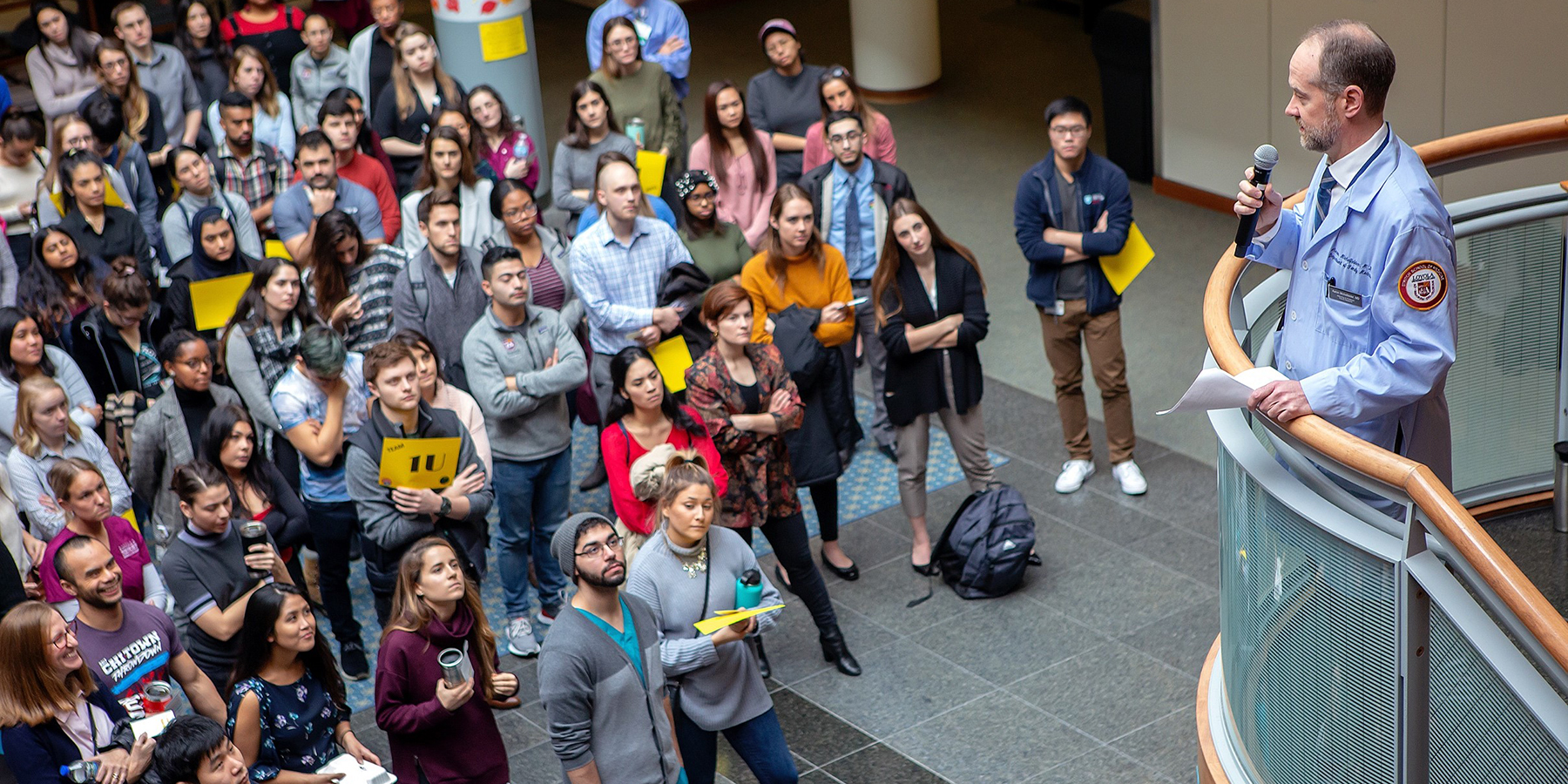More than 300 Medical and Nursing Students Team Up for Infection Prevention Training

As the worldwide effort to prevent the spread of the novel coronavirus (COVID-19) has reminded us, washing our hands is something we should do often. For health care professionals, this simple act is also one of the most important steps for preventing the spread of infection and disease.
Each fall semester, Loyola’s Institute for Transformative Interprofessional Education (I-TIE) partners with the Stritch School of Medicine and the Marcella Niehoff School of Nursing to train nursing and medical students on infection prevention. The inspiration behind the training predates the coronavirus—it stems from the 2014 outbreak of Ebola. As that virus spread to the United States, academic medical centers, including Loyola, contemplated how to respond if cases appeared in their health system. While Loyola University Health System never treated an Ebola patient, the outbreak generated new conversations among faculty about how to better train students to protect themselves and patients against infections.
“While it was unlikely our students would be exposed to Ebola, we wanted to educate them on how to protect themselves and their patients from other bacteria and disease,” says Stritch's Dr. Aaron Michelfelder, who co-directs the training with Fran Vlasses, a Niehoff professor.
Months before the coronavirus pandemic, I-TIE held its largest infection prevention event yet, with 340 medical and accelerated BSN nursing students last fall. During the training, students received an “infection” and had to appropriately don and doff gowns, masks, and gloves to prevent exposure to themselves and potential patients.
“Surprisingly, there’s a lot of resistance to teaching this kind of content, because everyone thinks they know how to wash their hands,” says Vlasses. While seemingly simple lessons, they could help save lives, as Loyola health care students use their training to confront the spread of a global pandemic as well as everyday viruses in the clinical setting.
See photos from the November 2019 Infection Prevention Training
